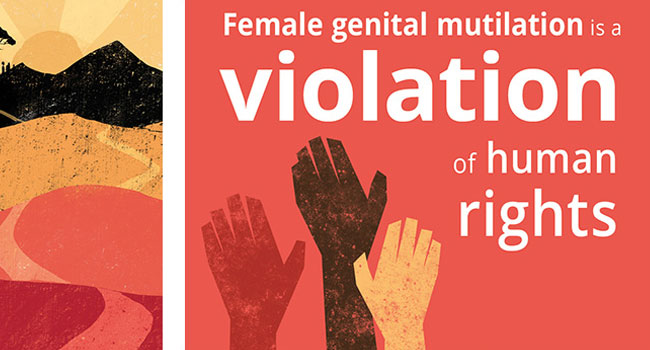By Muhammad Amaan
The Federal Government, United Nations Population Fund (UNFPA) and United Nations Children’s Fund (UNICEF) have re-committed to ending the practice of Female Genital Mutilation (FGM) in Nigeria by 2030.
They made the commitment on Tuesday in Abuja at the Annual Technical Consultative Meeting of the UNFPA–UNICEF Joint Programme on Elimination of FGM.
The meeting had “Delivering the Global Promise” as its theme.
FGM is a practise that involves altering or injuring the female genitalia for non-medical reasons.
Emphasising Federal Government’s stance about the practice, the Coordinating Minister of Health and Social Welfare, Prof. Ali Pate, said “the nation remains steadfast to its regional and international commitments to uphold the dignity of women and girls.”
Represented by Dr John Ovuoraye, a director in the ministry’s Health Department, Pate said “Federal Government undoubtedly sees FGM as a human rights violation.
“FGM is a severe violation of the rights to health, security and physical integrity, the right to be free from torture, cruel, inhuman and degrading treatment, right to freedom from discrimination and the right to life of women and girls.”
Pate also said that FGM must be addressed for the attainment of SDG Five, especially target 5.1, aimed at ending all forms of discrimination against women and girls everywhere.
He explained that “target 5:3 aims to eliminate all harmful practices, such as child, early and forced marriage and FGM, while target 5.6 is to ensure universal access to sexual and reproductive health and rights.”
He, however, said that over the years the country has recorded significant achievements, including a declining national FGM prevalence rate, implementation of the National Policy and Plan of Action for the Elimination of FGM in Nigeria (2021-2025).
Also, the operationalisation of the National Protocol on the Management of Complications from FGM in Nigeria (2020), enactment of legislation both at the federal and state levels such as the Violence Against Persons Prohibition (VAPP) Act.
The minister added that though there have been some achievements, Nigeria is still a long way off the mark.
He noted that “the reduction of prevalence still means that Nigeria contributes about one-tenth of the 230 million women and girls FGM survivors globally, placing the country the highest with FGM burden in Africa.
“We recognise that Nigeria must continue to play a critical role in the elimination of FGM to ensure global efforts are accelerated and goals achieved.
“We commit to ensuring the catalytic role that the UNFPA-UNICEF joint programme since its inception in Nigeria in 2014 has played will be met with a sustained effort on our side.”
The UN Regional Coordinator in Nigeria, Mr Mohammed Fall, said no country can tackle FGM alone because it knows no boundaries, and transcends cultures, regions and generations.
Represented by Dr Walter Mulombo, the World Health Organisation (WHO) Representative in Nigeria, Fall said “it is a global issue that demands collective attention.”
According to him, there is a worrying trend that more girls in Nigeria and in many parts of Africa, are subjected to the practice at younger ages, many before their fifth birthdays.
“This calls for increased investment in proven and evidence-based prevention focused strategies to curb the practice occurring in the first place, especially targeted at key decision makers at the household levels well before the birth of a child.”
He, however, reiterated UN’s commitment to sustain the gains recorded and collaborate to eradicate the harmful practice.
Speaking about the significance of the meeting, UNICEF’s Chief of Child Protection, Mr Ibrahim Sesay, said that with over 110 participants from 17 countries, it is aimed at creating a platform to share information, best practices and learn from each other.
It is also to ensure that global investment toward ending FGM is consolidated.
He also said that it was very important to galvanise efforts from stakeholders to end the crisis.
Essay said that in the case of Nigeria, there has been a decrease in terms of the prevalence of FGM of about three per cent over a period of eight to 10 years.
“So, which means we really need to double our efforts if we are supposed to really achieve SDG pertaining to ending FGM and other harmful practices.
“It is a very huge challenge, but it’s doable, because it has been proven that with significant investment, political commitment, the enforcement of the legal frameworks that we have is doable.”
The three-day meeting, which opened on Tuesday, would end on Thursday.




